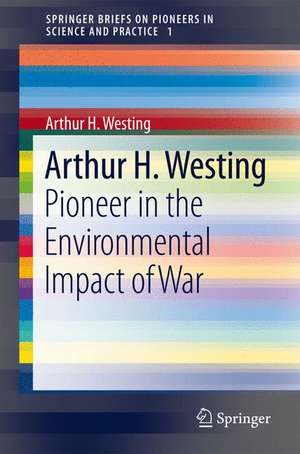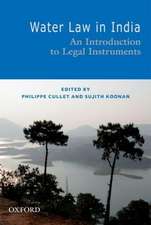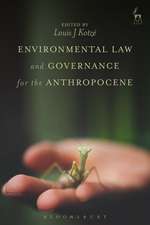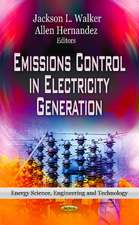Arthur H. Westing: Pioneer on the Environmental Impact of War: SpringerBriefs on Pioneers in Science and Practice
Autor Arthur H. Westingen Limba Engleză Paperback – 20 aug 2012
Din seria SpringerBriefs on Pioneers in Science and Practice
- 15%
 Preț: 469.74 lei
Preț: 469.74 lei -
 Preț: 385.08 lei
Preț: 385.08 lei -
 Preț: 383.50 lei
Preț: 383.50 lei -
 Preț: 381.00 lei
Preț: 381.00 lei -
 Preț: 381.00 lei
Preț: 381.00 lei -
 Preț: 380.07 lei
Preț: 380.07 lei -
 Preț: 382.18 lei
Preț: 382.18 lei -
 Preț: 382.75 lei
Preț: 382.75 lei -
 Preț: 381.98 lei
Preț: 381.98 lei -
 Preț: 380.25 lei
Preț: 380.25 lei -
 Preț: 381.98 lei
Preț: 381.98 lei -
 Preț: 381.00 lei
Preț: 381.00 lei -
 Preț: 380.07 lei
Preț: 380.07 lei -
 Preț: 381.98 lei
Preț: 381.98 lei -
 Preț: 410.77 lei
Preț: 410.77 lei -
 Preț: 381.98 lei
Preț: 381.98 lei -
 Preț: 381.00 lei
Preț: 381.00 lei -
 Preț: 382.18 lei
Preț: 382.18 lei -
 Preț: 381.43 lei
Preț: 381.43 lei -
 Preț: 381.98 lei
Preț: 381.98 lei -
 Preț: 449.74 lei
Preț: 449.74 lei -
 Preț: 384.86 lei
Preț: 384.86 lei -
 Preț: 381.98 lei
Preț: 381.98 lei -
 Preț: 453.39 lei
Preț: 453.39 lei -
 Preț: 177.88 lei
Preț: 177.88 lei -
 Preț: 259.79 lei
Preț: 259.79 lei -
 Preț: 382.75 lei
Preț: 382.75 lei -
 Preț: 175.58 lei
Preț: 175.58 lei -
 Preț: 381.21 lei
Preț: 381.21 lei - 15%
 Preț: 466.63 lei
Preț: 466.63 lei -
 Preț: 380.25 lei
Preț: 380.25 lei -
 Preț: 381.00 lei
Preț: 381.00 lei -
 Preț: 382.95 lei
Preț: 382.95 lei
Preț: 380.63 lei
Nou
Puncte Express: 571
Preț estimativ în valută:
72.84€ • 75.77$ • 60.14£
72.84€ • 75.77$ • 60.14£
Carte tipărită la comandă
Livrare economică 14-28 aprilie
Preluare comenzi: 021 569.72.76
Specificații
ISBN-13: 9783642313219
ISBN-10: 3642313213
Pagini: 125
Ilustrații: XIII, 150 p. 8 illus. in color.
Dimensiuni: 155 x 235 x 12 mm
Greutate: 0.24 kg
Ediția:2013
Editura: Springer Berlin, Heidelberg
Colecția Springer
Seria SpringerBriefs on Pioneers in Science and Practice
Locul publicării:Berlin, Heidelberg, Germany
ISBN-10: 3642313213
Pagini: 125
Ilustrații: XIII, 150 p. 8 illus. in color.
Dimensiuni: 155 x 235 x 12 mm
Greutate: 0.24 kg
Ediția:2013
Editura: Springer Berlin, Heidelberg
Colecția Springer
Seria SpringerBriefs on Pioneers in Science and Practice
Locul publicării:Berlin, Heidelberg, Germany
Public țintă
ResearchCuprins
Part I: War and the environment.- The environmental impact of war: a personal retrospective.- What next?: a search for environmental security in war and peace.- The author's relevant papers: a selective listing.- Part II: Benchmark papers by the author: an annotated selection.- The Second Indochina War of 1961–1975: its environmental impact.- The Gulf War of 1991: its environmental impact.- Environmental war: hostile manipulations of the environment.-Nuclear war: its environmental impact.- Protecting the environment in war: legal constraints.- Protecting the environment in war: military guidelines.
Recenzii
Arthur H. Westing is, “the most important pioneer on the environmental impact of war,” and should be regarded “as the father of the modern, continuous interest in the environmental effects of war.”
Arts & Entertainment, December 2012, Jerry Carbone
Arts & Entertainment, December 2012, Jerry Carbone
Notă biografică
Arthur H. Westing USA): Ph.D. (Yale), UNEP Global 500 Roll of Honour (1990); Fellow, AAAS, member of steering group of its Section on Societal Impacts of Science and Engineering, heads Westing Associates in Environment, Security & Education; former Professor of Ecology and Dean of Natural Science at Hampshire College. He was a research forester with the US Forest Service, taught forestry, ecology, and conservation at various colleges and uni-versities, was a senior researcher at SIPRI and PRIO where he directed the UNEP project on 'Peace, Security, and the Environment'. He has been a Consultant in Environmental Security to the World Bank, UNEP, UNIDIR, and UNESCO, to the International Committee of the Red Cross, to the Government of Eritrea. He is a member of the World Conservation Union (IUCN) World Commission on Protected Areas, Vice-President of the International Society of Naturalists (INSONA), and member or advisor to other international environmental non-governmental organizations and scholarly journals.
Textul de pe ultima copertă
Since the 1960s the environment has become an issue of increasing public concern in North America and elsewhere. Triggered by the Second Indochina War (Vietnam Conflict) of 1961-1975, and further encouraged by the International Conference on the Human Environment, held in Stockholm in 1972, the environmental impact of war emerged and grew as a topic of research in the natural and the social sciences. And in the late 1980s this led additionally to a focus and debate on environmental security. Arthur Westing, a forest ecologist, was a major pioneer contributing and framing both of those debates conceptually, theoretically, and empirically, starting with Harvest of Death: Chemical Warfare in Vietnam and Cambodia (1972) (co-authored with wildlife biologist E.W. Pfeiffer and others). As a Senior Researcher at the Stockholm and Oslo International Peace Research Institutes (SIPRI and PRIO), and as a Professor of Ecology at Windham and Hampshire Colleges, Westing authored and edited books on Ecological Consequences of the Second Indochina War (1976), Weapons of Mass Destruction and the Environment (1977), Warfare in a Fragile World: Military Impact on the Human Environment (1980), Herbicides in War: the Long-term Ecological and Human Consequences (1984), Environmental Warfare: a Technical, Legal and Policy Appraisal (1984), Explosive Remnants of War: Mitigating the Environmental Effects (1985), Global Resources and International Conflict: Environmental Factors in Strategic Policy and Action (1986), Cultural Norms, War and the Environment (1988), Comprehensive Security for the Baltic: an Environmental Approach (1989), and Environmental Hazards of War: Releasing Dangerous Forces in an Industrialized World (1990) --- as well as authoring numerous UN reports, book chapters, and journal articles. This volume combines six of his pioneering contributions on theenvironmental consequences of warfare in Viet Nam and in Kuwait, on the environmental impact of nuclear war, and on legal constraints and military guidelines for protecting the environment in wartime.
Caracteristici
Includes supplementary material: sn.pub/extras












